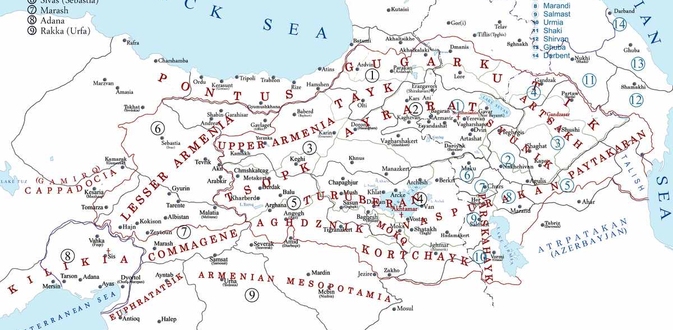I’m really intrigued and excited by the ArmGenia project. This project has been in the mill since 2014. Initiated in Armenia, UCLA came on board, and it was formally kicked off two months ago. It proposes to do nothing less than sequence the Armenian genome.

Genetic Research Charitable Trust ArmGenia is a non-for-profit organization that is established in Armenia to do innovational research and scientific studies in genetics, health, and other relevant public disciplines.
Right now, there’s no way of knowing if there is even such a thing as an “Armenian genome,” simply because it has not yet been sought with the newest technologies. With UCLA’s labs on board, charging only their costs, we may soon have the beginnings of an answer. This is data intensive work as each person’s genome contains 5 terabytes of information (tera means 1,000,000,000,000), which is 10 times the storage capacity of typical laptops and home computers these days!
But before beginning the task of processing all that data, DNA samples from Armenians must be secured—and they have been. An initial grant will pay for these first samples to be run. Two regions have been chosen, Artsakh and Kharpert, with ten people from each region participating. The regions were chosen because the former is so important for Armenians these days, and the latter is the home of the donor’s parents.
Once the data is crunched, it will be possible to determine if there is a reasonable likelihood that a distinct Armenian genome exists. But, it will not be conclusive, and more DNA samples will have to be sequenced before a conclusion can be reached. If there is enough evidence of the possibility that an Armenian genome exists, then many more samples will have to be tested to identify it exactly. A deliberate process, without jumping to premature conclusions, will provide valuable scientific, medical, and historical information and insights.
I am excited by this because knowing what our genome is allows comparison with those of others, our neighbors, and, to my mind, the reconnection with our lost “cousins” from not only the genocide, but also pre-genocide forced conversion and assimilation into “Turks” or “Kurds.” This would likely be a very sensitive area, but my sense of historical and restorative justice requires that we explore and address this, if possible.
This matter is timely given that we are in the post-Centennial era when all kinds of small projects born of creative minds are tackling, in new ways, the massive loss we experienced a century ago. Plus, it is the annual time of commemoration. Imagine what a great thing it would be if a few years from now, we had in our quiver an arrow born of solid science to reclaim at least some small portion of what we lost.
But much work remains to be done. Hopefully, the results of ArmGenia will be more conclusive, one way or another, than other efforts which were inconclusive because the technology to study our genes had not yet advanced enough. The data developed from this study will be coupled with historical knowledge to open new windows on our collective human past, especially on the Armenian Plateau and its environs.
The toughest step might not even be possible. What step? The ability to identify family relationships, and not just general groups, nations, tribes. Currently, the ability to identify family relationships through genetic testing with any meaningful level of certainty is limited to two generations. If this improves, we may be able to reconnect with countless lost cousins, even those hidden from us since before the Genocide. Couple this with the (hopefully) affirmative outcome of ArmGenia’s research, and we may one day be able to have massive family reunions on April 24.
My one complaint about ArmGenia is linguistic. Why choose a Greek based name for something so elementally Armenian? Why not HyeDzeen (or HyeTseen, using Eastern Armenian pronunciation)? Dzeen is the Armenian word for gene. While thinking of this, I realized we don’t yet have a word for “genome” in Armenian, so I’m proposing “ծինաշարք” – dzeenashark (tseenashark), “row of genes” for use. What do you think?
To prepare this article, I had the great pleasure of having a long discussion with Dr. Wayne Grody and Salpy Akaragian of UCLA who are the key people on UCLA’s end of the ArmGenia project. I also spoke with Dr. Haroutune Armenian, an epidemiologist (and hiking buddy), who referred me to Dr. Vazken Der Kaloustian, a geneticist. The insights these four informed people provided enabled writing this article, otherwise, it would have fallen flat. It would have been just a bunch of enthusiasm without grounding in fact and wisdom.
I now look back with a new perspective to the time when one of my brothers decided to tease me about something I had written five years ago. It was a suggestion to gather hair from current residents of occupied Armenian lands for genetic testing.
I hope you’re as excited as I am by the possibilities!
Source: Armenian Weekly
Link: Dzeenashark—and Family Reunions?
